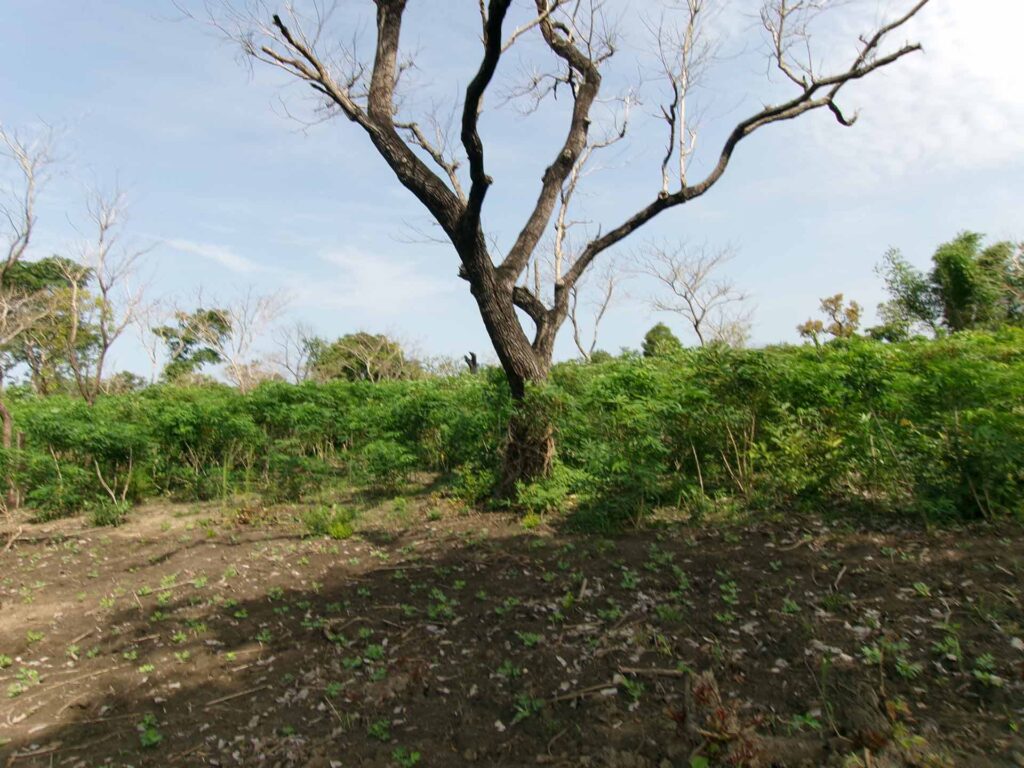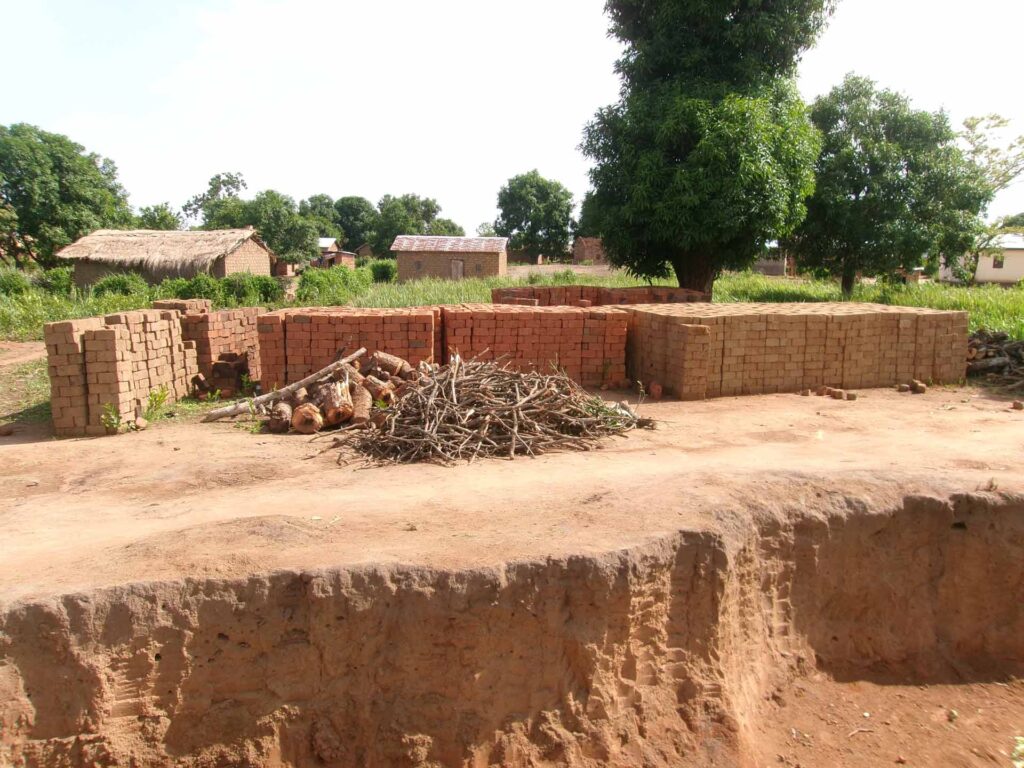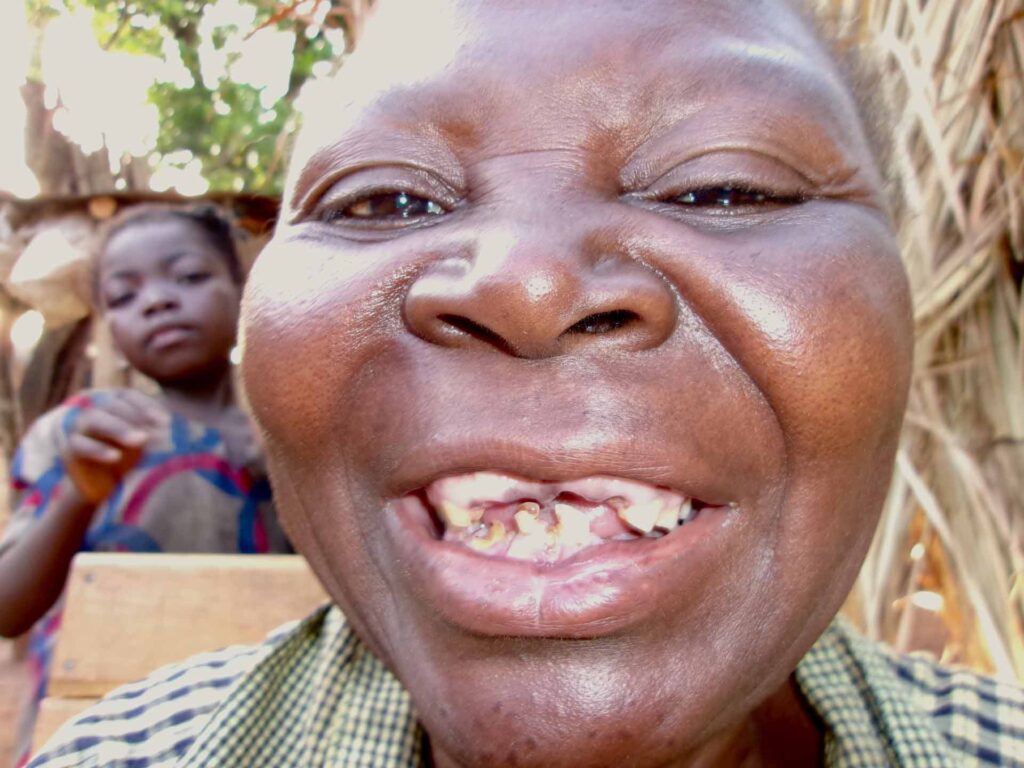Picturing Reparation
Country: Central African Republic
Participants: Female survivors of sexual violence
‘Hope’
I had a lot of medical problems after being raped in the most brutal and cruel way. Farm work is difficult for me. That’s why I also started a small business. I started to stand up again. With the medical support and therapy I received, I began to feel better and people started to approach me again. I live a bit far from the city centre. My small shop also helps others in my neighbourhood.
© Colette
In 2002/2003 conflict erupted in the Central African Republic (CAR) and the civilian population suffered brutal attacks creating a large number of victims of crimes of sexual and gender-based violence such as rape as crime against humanity and war crime. The CAR government referred the situation to the International Criminal Court (ICC) and investigations into crimes set out in the ICC’s Rome Statute, were opened in 2007.
The Trust Fund for Victims (TFV), established pursuant to the Rome Statute to respond to the harm resulting from the crimes under the jurisdiction of the ICC, helps survivors of the gravest human rights violations through reparations and assistance. TFV started working in CAR in 2020 providing support to a.o. female victims of sexual violence and their families living in precarious conditions and suffering long-term harm as a result of their experiences. These included health, psychological and social integration issues.

‘I am beautiful’
After the events, I had no more pride. I had lost weight; I was overthinking everything. People didn’t come close to me anymore. Since I received psychological help, I stood up again. I started my small business with the kit I received, and I was able to move forward. I dress well and now I feel beautiful again.
© Cécile
In 2023, a group of 15 women receiving support from TFV came together and over 5 days used photovoice to capture and document changes in their lives. Each of these women had endured the brutal attacks of armed groups 20 years earlier. The participatory photography and storytelling workshops were run by the TFV through Voices That Count, a network of experts and practitioners specialising in narrative and participatory methods, with the support of TFV’s local partner, DanChurchAid.
The women, who all knew each other through community therapy groups and were familiar with each other’s experiences, were able to talk openly about their harrowing stories and how they have worked to re-build their lives. Over the first days of workshops, they examined how photography can be used to tell stories (using reality, symbolism and arranged scenes), how to photograph people and how to communicate abstract themes in pictures before photographing changes that they have noticed in their lives since the 2003 incidents.

‘The new and the past’
For me, this photo shows the continuation of life. I have been able to invest in my farming activities, such as growing cassava. The peanuts I have been able to plant reflect change. The cycle of life continues. The new begins to grow.
© Céline

‘Personal development’
These simple bricks give me a great emotion. The house with the straw roof in the background of the photo reminds me of the time of poverty during the events: I had to cover myself and my children to protect us from the rain. Now I have a solid house. And I am building a second house to rent out. You can see how the works have started.
© Pulchérie
The women worked individually with facilitators to do an initial selection of their photographs, choosing the most significant that they were happy to share with others. In their big group they then curated a collective edit, analyzing their images to discover the meaning and significance of the stories in their photographs, identifying common topics and defining categories to structure their shared story of change. They identified 7 common themes that included changes that resulted from psychological support, regaining health due to medical interventions, being able to progress in life through trade, agriculture and animal husbandry as well as the scars that remained. The facilitators worked with translators and discussions were conducted in the women’s language, Sangho. In the final part of the workshops the women discussed who should see their pictures and participants agreed they especially wanted their stories shared outside CAR. Their images will be used to inform TFV’s programming and to raise awareness of the experiences of survivors of sexual and gender-based violence in CAR to international audiences.

‘The irreparable scars’
On that day, February 14th, 2003, he hit me in the mouth with his gun. They raped me and left me in a serious condition. My husband discovered my state. He could have left me, but he didn’t. Thank God, my husband is a Christian. He was the first to advise and comfort me. He told me not to worry because it’s not the end of the world. I’m still alive and that’s the most important thing. I show you my teeth because they are a part of me and show what I lost during that difficult time. I lost my beauty as a woman. I live with this shame every day. Every time I have to smile, everyone notices that I’m missing teeth. These scars will always remain. But I have the courage to show my teeth.
© Paulette
‘I appreciated this individual step, the face-to-face conversation between one of the participants and the facilitator. This made it possible for every woman to tell the story behind her picture in confidence and it gave the facilitator the opportunity to ask specific questions. Every voice in the room was heard, including the women who did not fully participate in the group discussions’.

